Bahia has always been a top destination in Brazil, but also in South America, for discerning travellers. Being one of the largest areas of Brazil, it includes stunning scenery and beautiful beaches, nature reserves of national parks, UNESCO heritage sites, unique African influences such as capoeira and various dances, colourful architecture and delicious gastronomy. It has so much to offer and is a destination that you can come back to more than once. Salvador, Chapada Diamantina, Boipeba, Marau, Trancoso – there is something for everyone! Explore further and delve deeper into this fascinating Brazilian region.
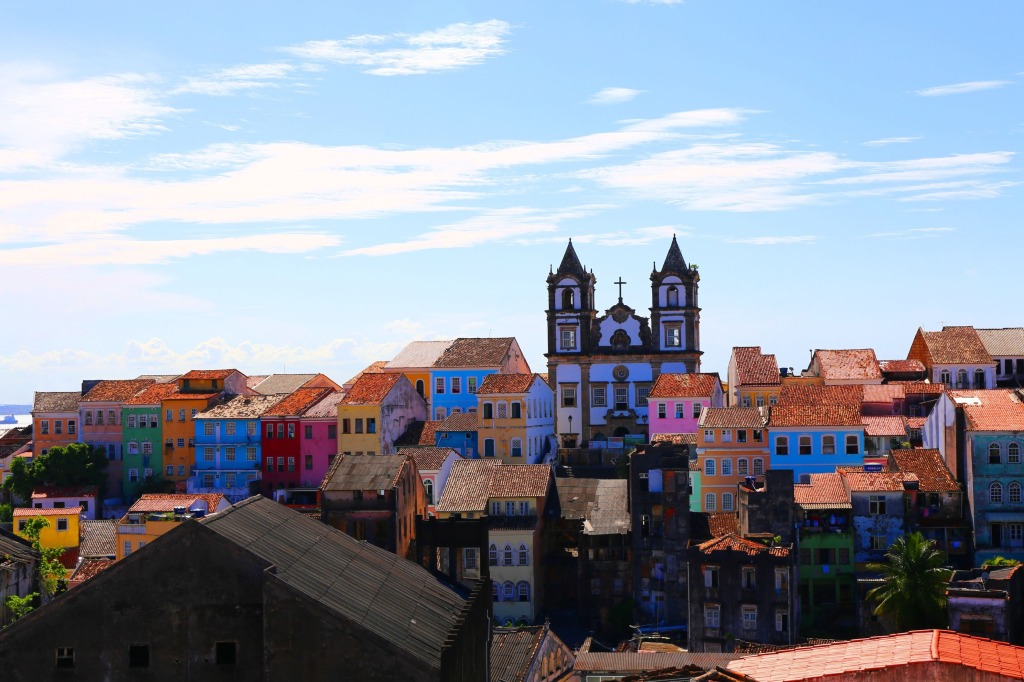
Bahia has a diverse landscape, from gorgeous tropical beaches that extend as far as the eye can see on the coast to a more mountainous interior with scenic table-mountains and lush valleys. This region of Brazil still preserves its secrets of undiscovered beauty with scenic hiking trails, turquoise beaches, blue lakes and marvellous waterfalls. The best experience possible in Bahia is to enjoy its slow pace, lovely scenery, tasty gastronomy and the vibrant ambience. This is the main reason why Bahia is the choice for most travellers in Brazil.
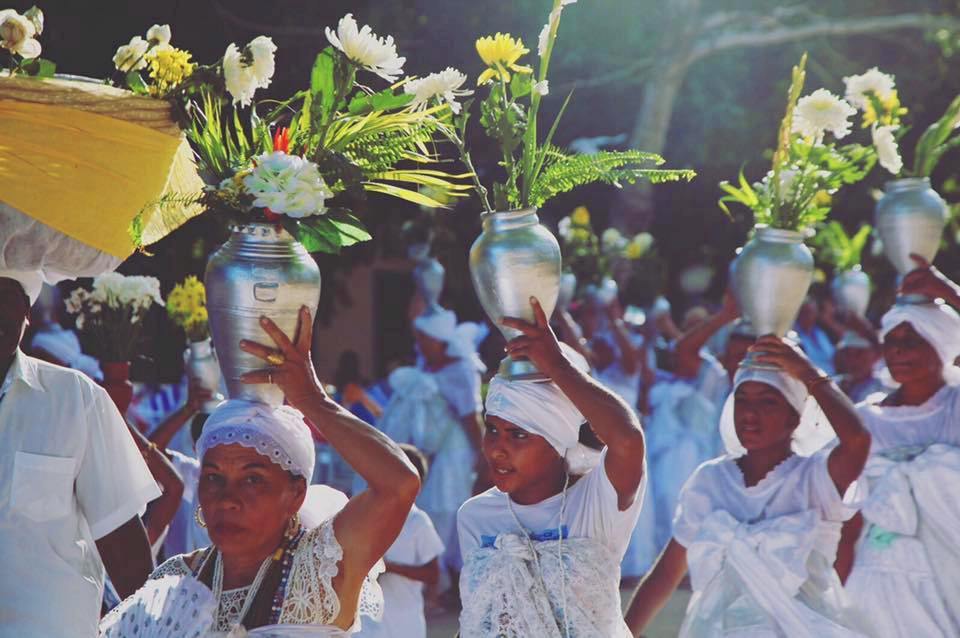
We want to introduce you to a slightly more off the beaten track Bahia which we think you will love. Here are a few Bahian highlight and experiences not to miss:
1. Beaches
Bahian coastline offers a variety of gorgeous beaches. BTE can design wonderful beach trips to get to the main, key beaches and also to more secluded ones on a private boat. We love nothing better than to design glorious and relaxing beach holidays. We can also design beach days with horse riding, dolphin and whale-watching with scientists, diving, SUP, kayaking and visiting coastal nature reserves. If you are looking for a calm and timeless moment, go snorkelling to:
Praia do Forte
Praia do Forte is a lovely beach village located in the north on Salvador, famous for its transparent waters and white sands, where sea turtles lay their eggs. Beaches are sheltered by lush coconut groves and a rich coral reef stretching along the shore. At low tide, colourful fish get stranded in small natural pools that form around the reef. Snorkelling and diving is really great here.
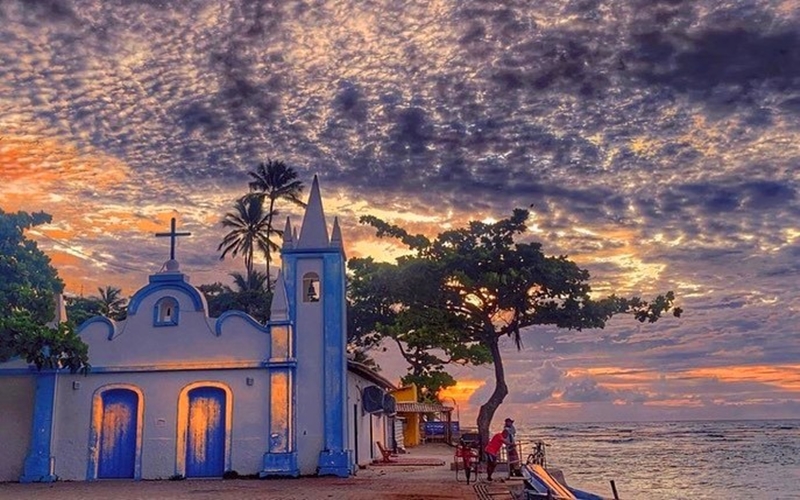
Morro de Sao Paulo
Board a speedboat to the crystalline natural pools of Morro de Sao Paulo, which form at low tide. When the tide goes out, the water reaches up to the knee, in the middle of the ocean – it’s really incredible. The coral barrier reef form beautiful pools with colourful marine life. Enjoy a spectacular snorkeling.
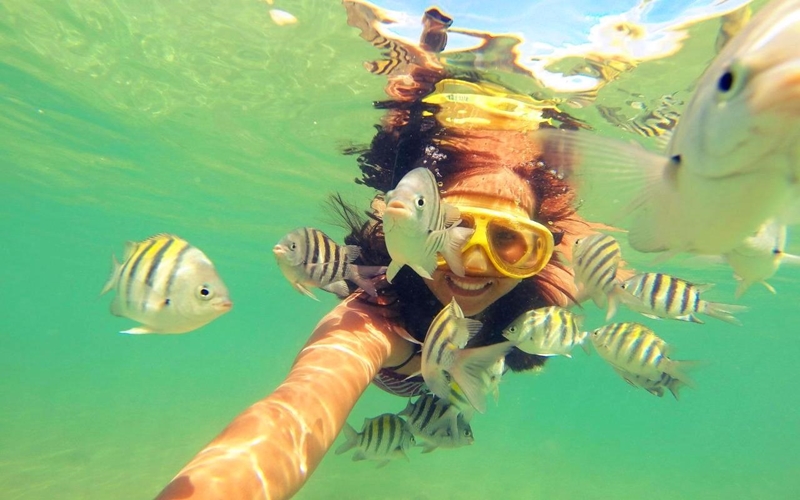
Morere
Explore the natural pools in Praia do Moreré in Boipeba on the archipelago of Tinharé, in the south of Bahia. The island is surrounded by the ocean on one side and by the estuary of the Inferno river on the other side. The whole place is made of rare natural beauty. Amazing natural pool form at low tide. You will have the beach all for yourself. This island is still unspoiled, keeping its rustic feel. This timeless island promises you a stay of relaxation and tranquility.
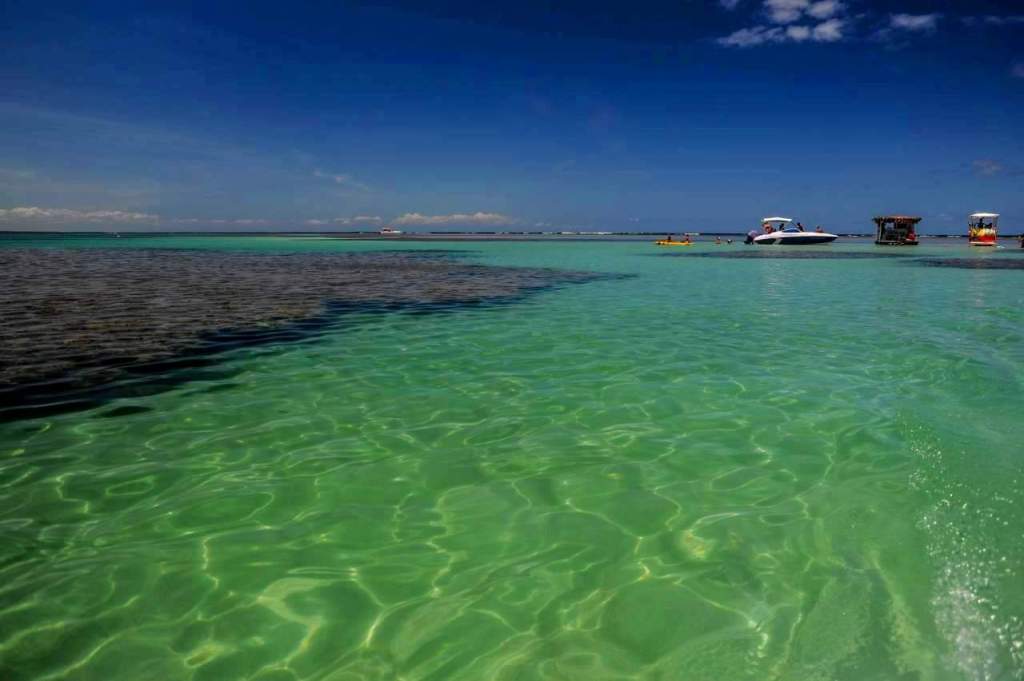
Taipu de Fora
Check the tide and head towards to natural pools of Taipu de Fora near Barra Grande in Marau. The beach is long and lovely, with tall coconut trees and white sands. The water is crystalline and the marine life is so rich. This is by far one of the best beaches in Brazil.
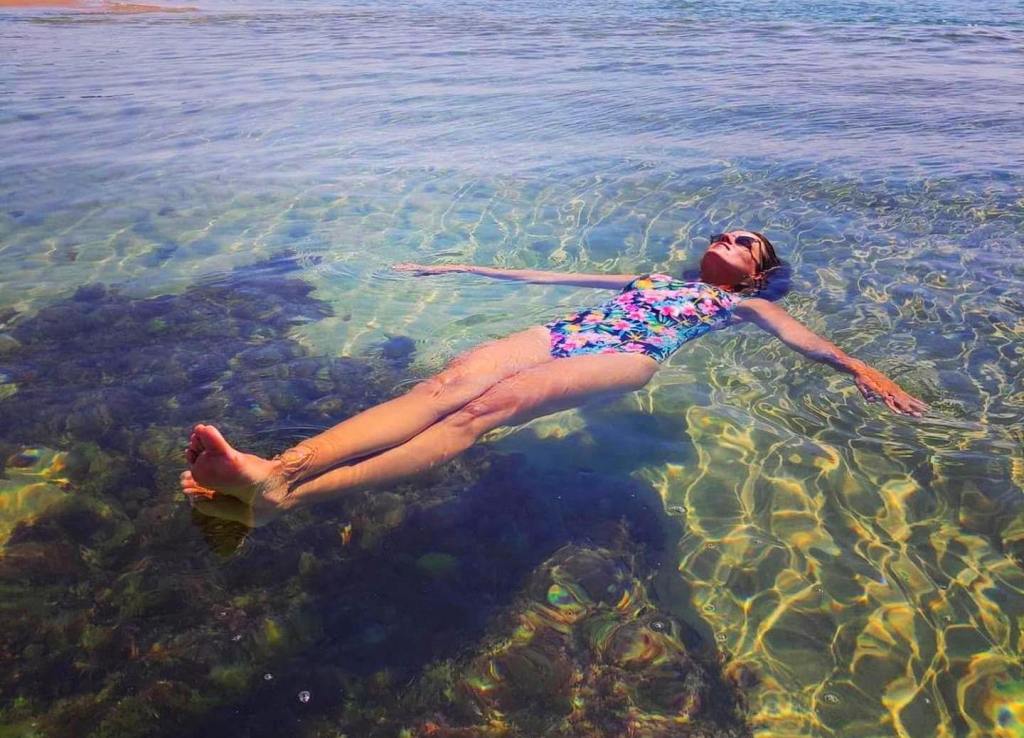
Praia do Espelho
Fall in love with magnificent natural swimming pools, luxuriant vegetation and imposing cliffs in the south of Trancoso, on Praia do Espelho. This little paradise beach is located in the state of Bahia, in a remote area, prized by lovers of high-end Brazilian charm. Turquoise blue water, beautiful nature and tranquillity – this is a very recharging place in Brazil.
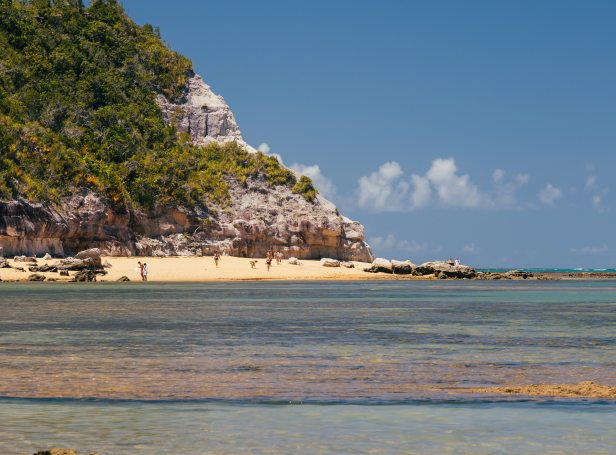
You can view some recommended beach itineraries in Bahia HERE
2. Wine Tasting
Chapada Diamantina boasts wines that will surprise you for their excellence, aromas and colours which are as unique as the landscape and cuisine. The UVVA vineyards are a pleasant surprise, whose wines take in the power of the landscape and the heat. The white wines are aromatic, fresh and balanced, and the red wines are more intense, full-bodied and at the same time smooth and slightly astringent. You can spend a beautiful week in Chapada Diamantina and visit this unique winery with wine tasting of their premium wines. You can view a recommended tour HERE.
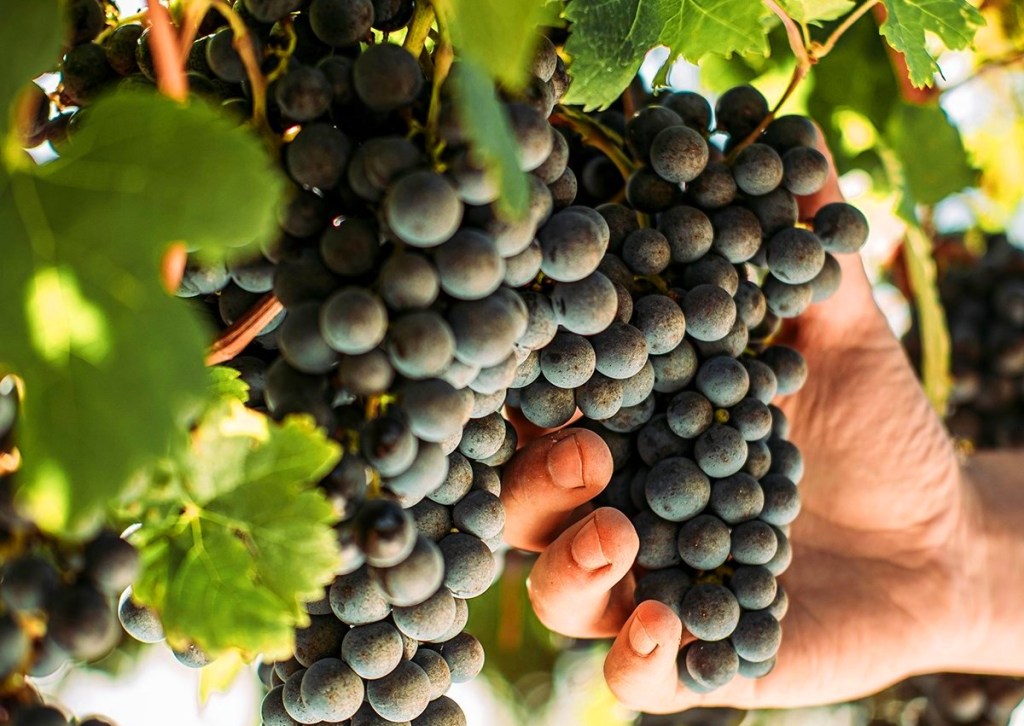
3. Gastronomy
Bahia – just like all regions in Brazil – has wonderful local gastronomy to enjoy. Bahian traditional cuisine often has, as a base, seafood, cassava flour, beans, rice and tropical fruits. To these main ingredients, local spices are added. Bahia is also known for its traditional street food and tropical drinks. The creative cuisine of Bahia is an authentic experience coming from the hands of the friendly people. BTE loves to take travellers to traditional restaurants with laid-back and cosy environments where you will find very good examples of the local gastronomy and to organise picnics in beautiful, private locations. We also specialise in “farm to table” gastronomy experiences.
Moqueca
Moqueca is a seafood stew that is typically made with fish, onions, tomatoes, bell peppers, garlic, and coconut milk. The ingredients are cooked together in a clay pot, which gives the dish a unique flavor. Moqueca can be made with different types of seafood, such as shrimp, crab, or octopus, and can be served with rice or farofa (toasted manioc flour). The dish is known for its rich flavor and is often enjoyed as a special occasion meal or at festivals.
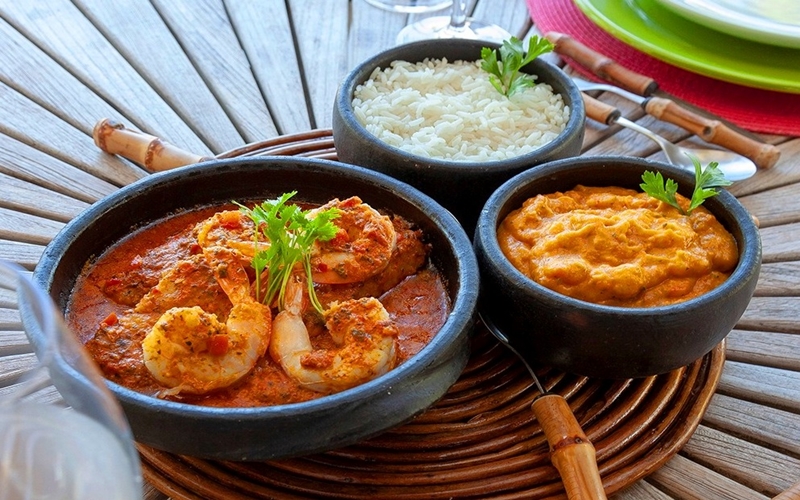
Acaraje
Acarajé is a traditional street food from Bahia. It is made from black-eyed peas that are ground, formed into balls, and deep-fried in dendê (palm oil). The crispy balls are then cut open and filled with a spicy mixture of vatapá (a paste made from bread, shrimp, coconut milk, and spices) and caruru (a sauce made from okra, onion, garlic, and spices). Acarajé is often sold by vendors who carry the fried balls on their heads and serve them hot.
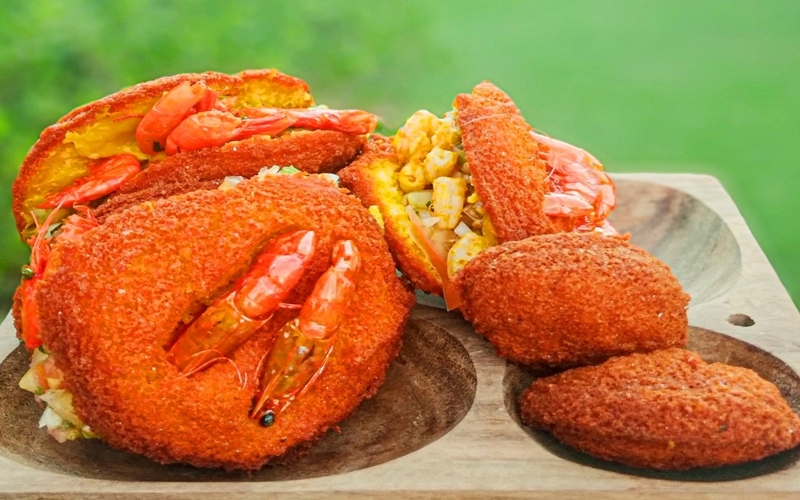
Chokolate
The seeds of cacao were first brought to Bahia in 1746 from the Amazon and planted on the Cubículo farm. Cacao brought wealth to Bahia. Learn about the organic production cycle and taste different types of chocolate. Visit historic cacao farms and taste high quality chocolate, learning about organic practices: Fazenda Capela Velha, Fazenda Provisão with its colonial style chapel and Casa Sede, decorated with vintage elements, Juerana Milagrosa which is surrounded by rainforest, Boa Esperança cacao farm, Vista do Mar Farm and more. Discover the rustic village of Taboquinhas with the historic Vila Rosa cacao farm. Take a guided tour through the farm and learn about the process of harvesting, fermenting and drying the cacao seeds. Visit the on-site museum, where you will taste fine handmade chocolate and also try making a bar yourself. View a recommended tour HERE
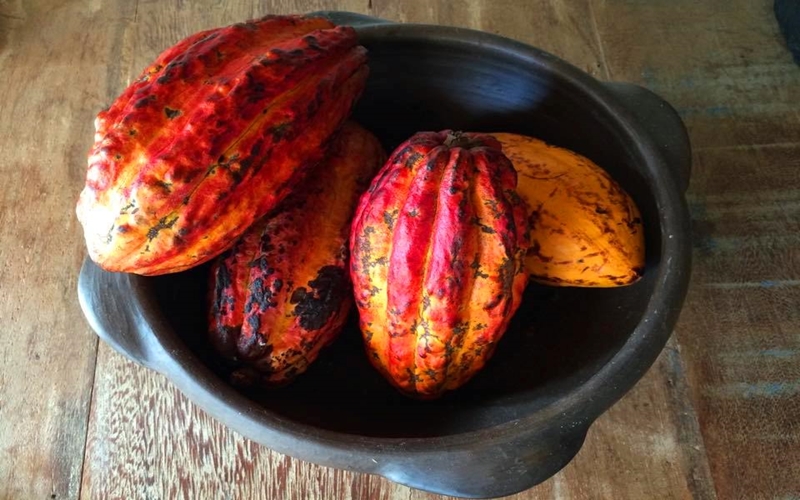
Bahian cuisine and cooking lessons with a local chef
One of BTE’s favourite gastronomy experiences is where the local chef takes travellers on an exclusive, private gastronomy tour along the seaside. Together you will visit the famous São Joaquim Market to where you will source the best and freshest local ingredients used in the regional dish, the moqueca. Then, go to the Museum of Bahian Gastronomy and lastly, attend a local cooking class hosted by a Bahian expert chef.
4. Picturesque historic towns
Bahia has several picturesque towns with rich Afro-European history and elegant monuments, such as:
Salvador
A colorful and bright city, Salvador captivates with the happiness of Afro-Brazilian culture. This unique charm is a consequence of the mixture of many cultures. The icon of Bahia, Pelourinho, is located In the Upper Town and has a lovely architecture with colorful houses and colonial churches, besides having a delightful gastronomy and special music. A walking tour is the best way to visit the historical centre of Salvador, considered a UNESCO World Heritage Site. Start at Municipal Square with the beautiful lookout of the city. Continue to Terreiro de Jesus Square, visit Basilica Cathedral and the baroque church of Cruzeiro of Saint Francis. There are also a few museums showing the greatest expressions of Bahian syncretism.
Salvador is also home to several UNESCO listed forts which tell the story of the past centuries. The fortresses marked the contact between different cultures, serving as defensive buildings. Today, there are dozens of fortresses along the coast of Brazil, representing the formidable defence systems deployed in Brazil, the points that served to define the sea and river borders that resulted in the largest Latin American country. Some of the main forts in Bahia are:Fortaleza Nossa Senhora de Monte Serrat Barra de Salvador Complex (Santo Antônio da Barra Fort, Santa Maria Fort, São Diogo Fort), Forte São Marcelo.
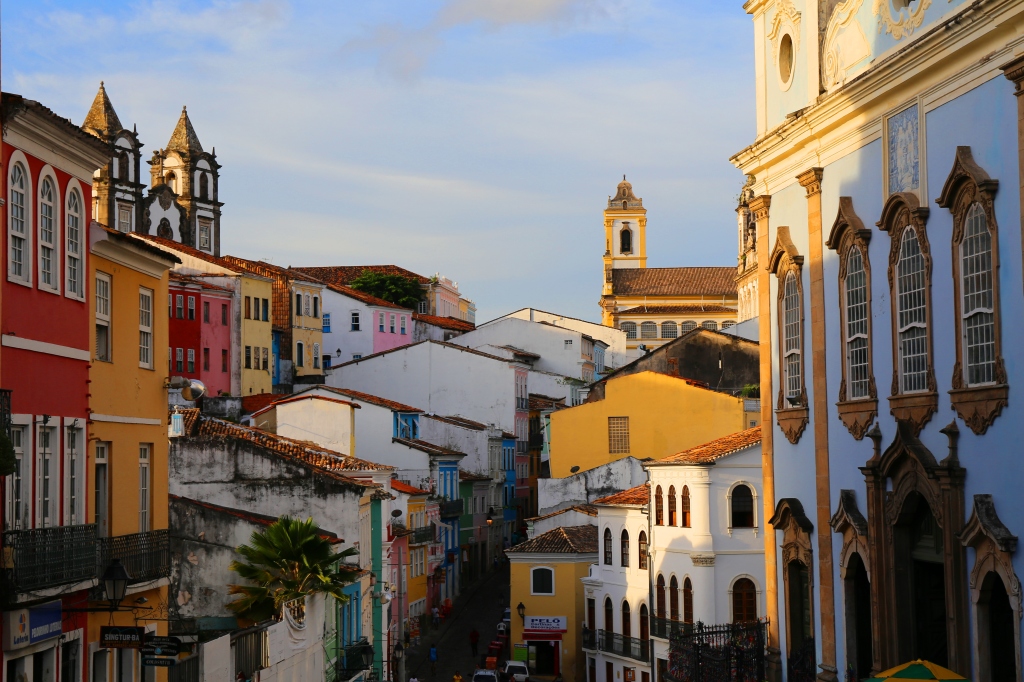
Lencois and Mucuge in Chapada Diamantina
Set amidst the national park of Chapada Diamantina, the towns of Lencois and Mucuge are a charming and colourful, also being the gateways to a gazillion on nature trails. These towns are rather hidden gems in Brazil and are among the finest examples of former diamond settlements. Lencois and Mucuge are picturesque, tranquil towns with many interesting sites to visit. Their historical heritage is well preserved in the houses and buildings dating from the colonial period, which are surrounded by cobblestone streets.
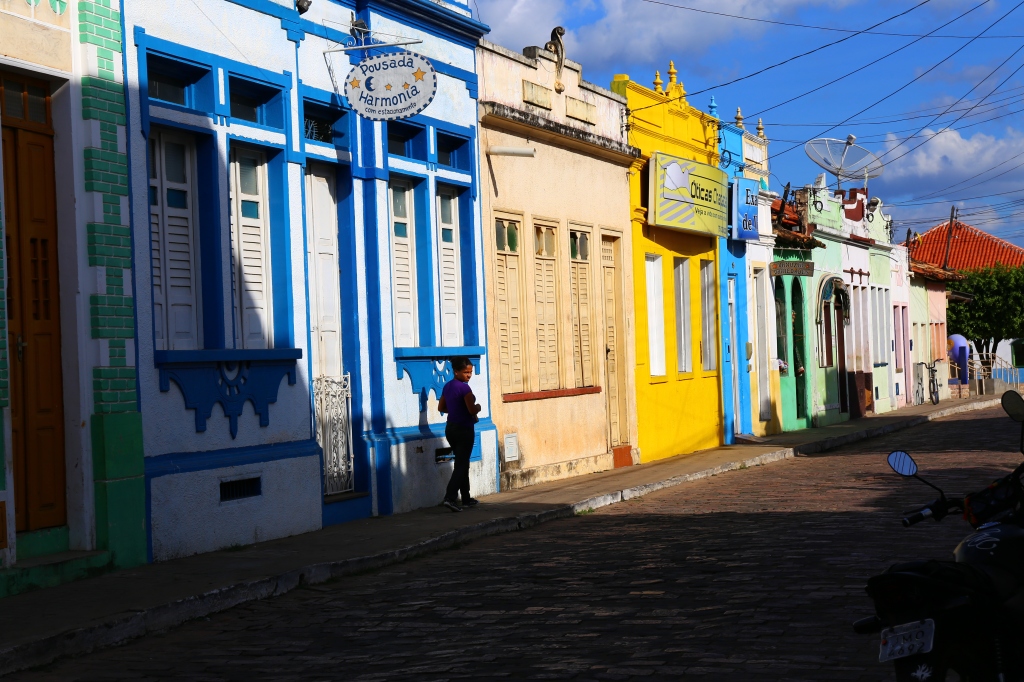
Porto Seguro
Porto Seguro is the first place which has been colonized by the Portuguese in Brazil. Today, this town is the gateway to great beaches in the south of Bahia. This area has the most relaxed and slow-paced vibes in Brazil, where the sun shines year round and beaches are the finest. Go up the hill in the historic area of Porto Seguro, that has some of the first houses and churches the Portuguese built in Brazil. Visit Sao Benedito Church, Matriz de Nossa Sra da Pena Church, Misericórdia Church, the ruins of the first Jesuit school in Brazil and the Municipal Palace. At the end of visit the symbol of the Portuguese Navigator who discovered Brazil.
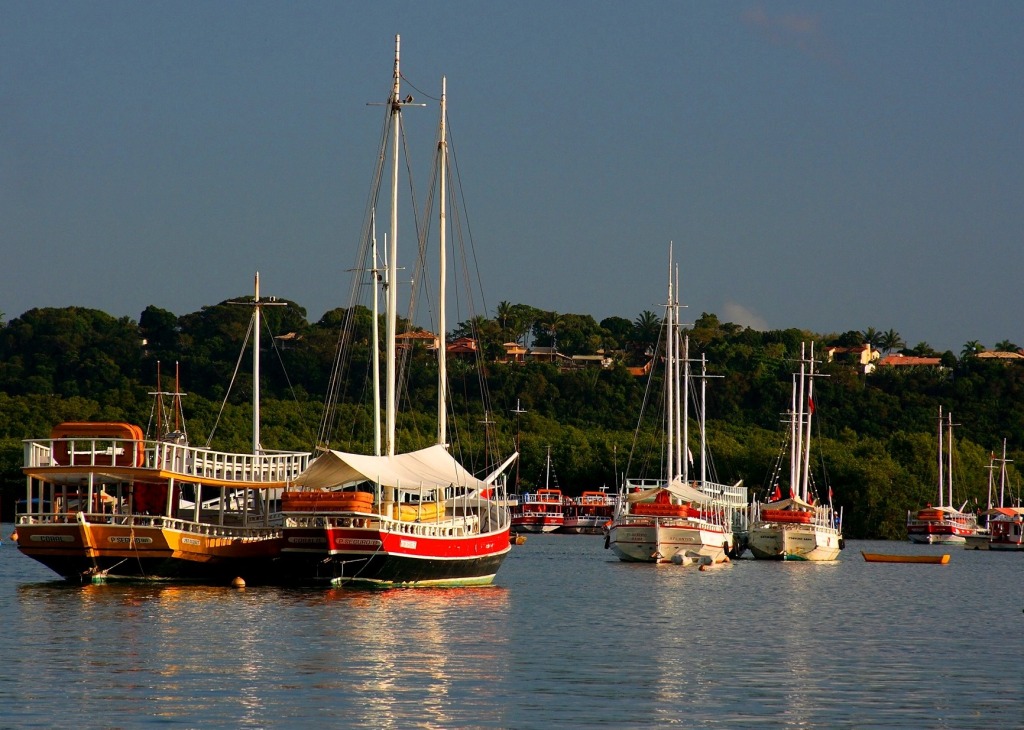
Santo Amaro and Cachoeira
Santo Amaro is a beautiful colourful place with colonial buildings and an impressive church, it is the birthplace of Samba de Roda, a UNESCO intangible cultural heritage of humanity. Visit the local market; stop at a settlement to learn about agriculture and community work. Explore the good nightlife of this amazing African heritage site.
The small town of Cachoeira once was an export hub for the area’s plantations, and thanks to wealth gained off the back of the slave trade its streets were soon lined with handsome mansions. Today this is a languid port town with a relaxing and charming vibe. Stroll and soak up the riverside atmosphere. It’s a peaceful drive through agricultural land to reach the town. You will be crossing scenic sugar cane plantations, beautiful villages and colonial farms. Visit the communities of Quilombo do Cassange and Santiago do Iguape, the remote village of São Francisco do Paraguassu, a colonial site with an impressive convent, tobacco port of Maragojipe and São Felix.
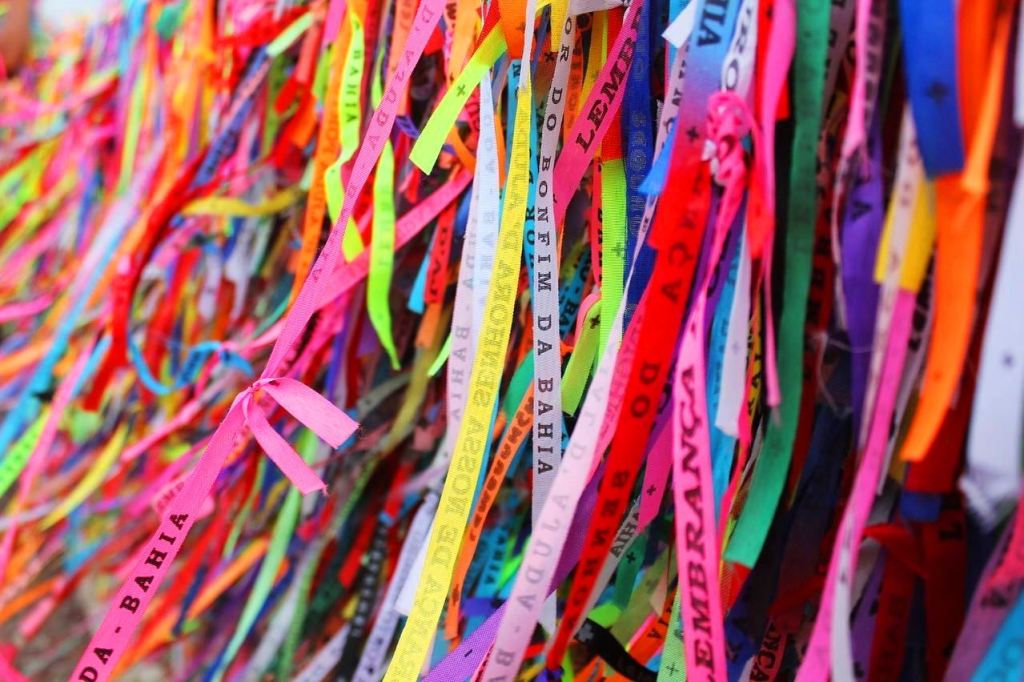
View recommended itinerary of these towns : Salvador, Cachoeira, Santo Amaro, Porto Seguro, Lencois and Mucuge.
5. Horse Riding
A glorious experience that we love is to ride horses along Bahian beaches. Feel surrounded by nature, the purity of the air, the immense sky, the forest, the birds and the sea. Horse riding on the beach is also an opportunity to discover the beach flora, wonderful botanical species that make the landscape so beautiful. Horse riding is available in Morro de Sao Paulo, Porto Seguro, Itacare, Trancoso, where you can ride along beautiful beaches as well as in Chapada Diamantina.
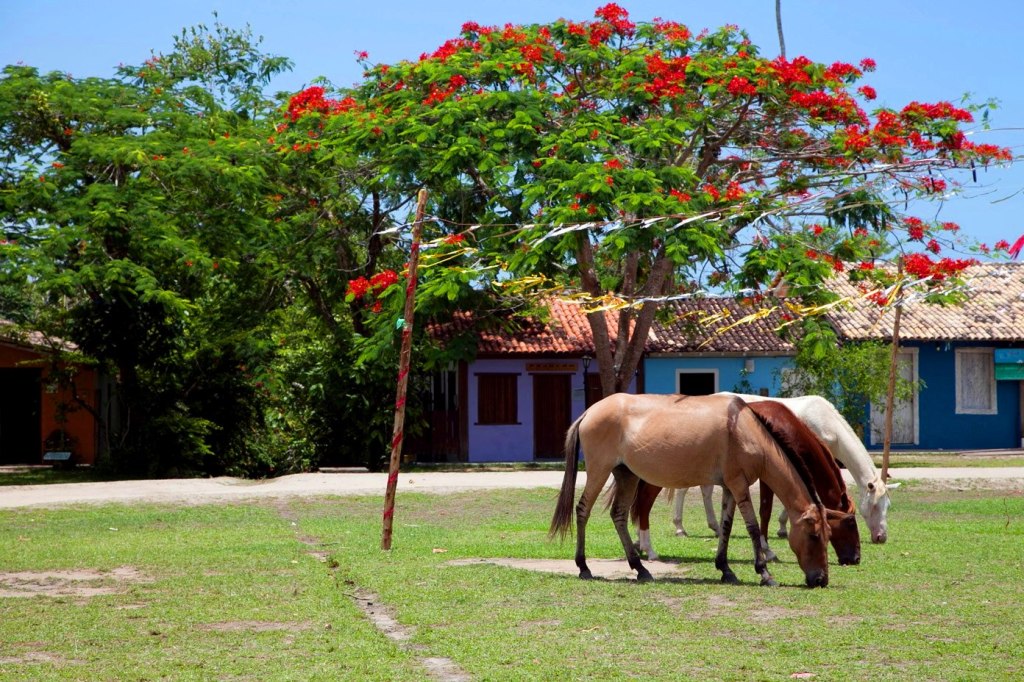
6. Water Sports
Bahia has many places where you can enjoy a wide variety of water sports. You can go stand up paddling or kayaking.
Kayaking & SUP
Kayaking is one of the best ways to discover the impressive mangroves of Bahia. The fact of not having the noise of a motor gives you an even nicer way to admire the beautiful scenery. With the kayak you can stop at beautiful beaches for resting and snorkelling. You can do it in Caraiva, Itacare, Trancoso, Boipeba and more. There are dozens of calm bays with calm waters where you can enjoy a relaxing SUP at the right tide.
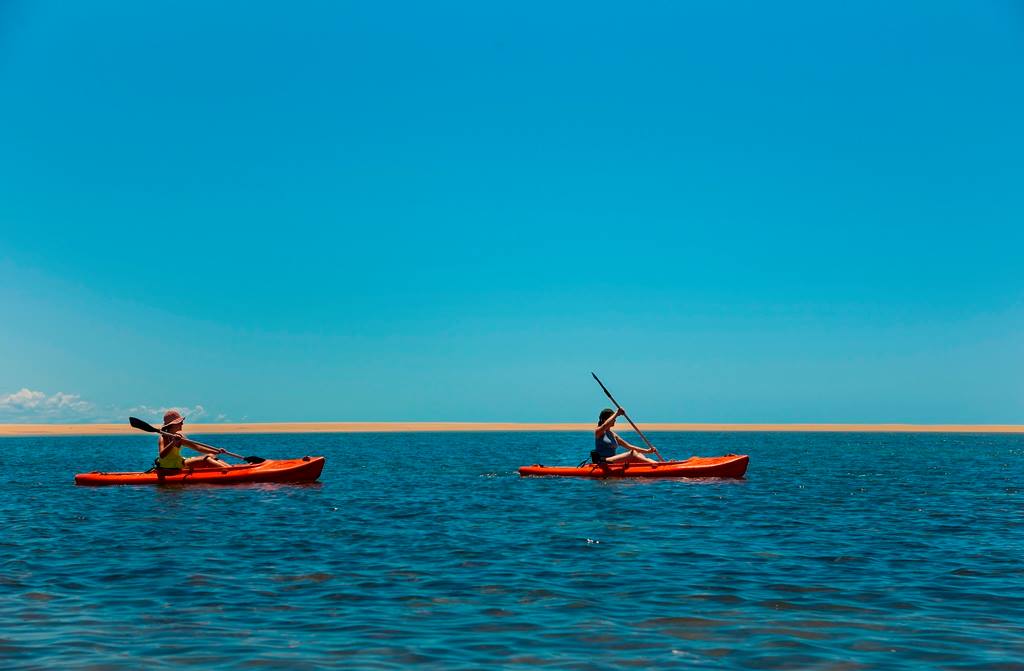
Diving
Abrolhos was Brazil’s first marine park. Charles Darwin, aboard the HMS Beagle, visited the place in 1832. The crystalline waters of the Abrolhos Archipelago make up the ideal environment for about 19 healthy coral species (including brain coral) and over 160 fish species. Loggerhead and green sea turtles, manta rays and dolphins are very common in this region. You can also encounter octopus, nudibranchs, and different species of crustaceans. The main attraction is the famous ‘singing’ Jubarte whales (during July to Novemeber) which can be observed from the boat. May to September is the dry season, with the best visibility. Start in Caravelas or Alcobaça, the two gateways to the fantastic volcanic Abrolhos Archipelago located around 70 km / 40 miles off the coast. Abrolhos offers calm, shallow and relaxed dives, and though the visibility is not as good as Noronha, the richness of the giant exotic corals and marine life is incredible. Unique large coral structures, chapeiros, growing aside like big mushrooms surround this site. The reefs of Abrolhos are considered some of the most interesting and unique of South America. Abrolhos is filled with a wide array of coral reef fish species, as well as many passages and at least three shipwrecks (i.e. Italian freighter Rosalinda which sank in 1939). Meet your instructor to plan the dives for the next days.
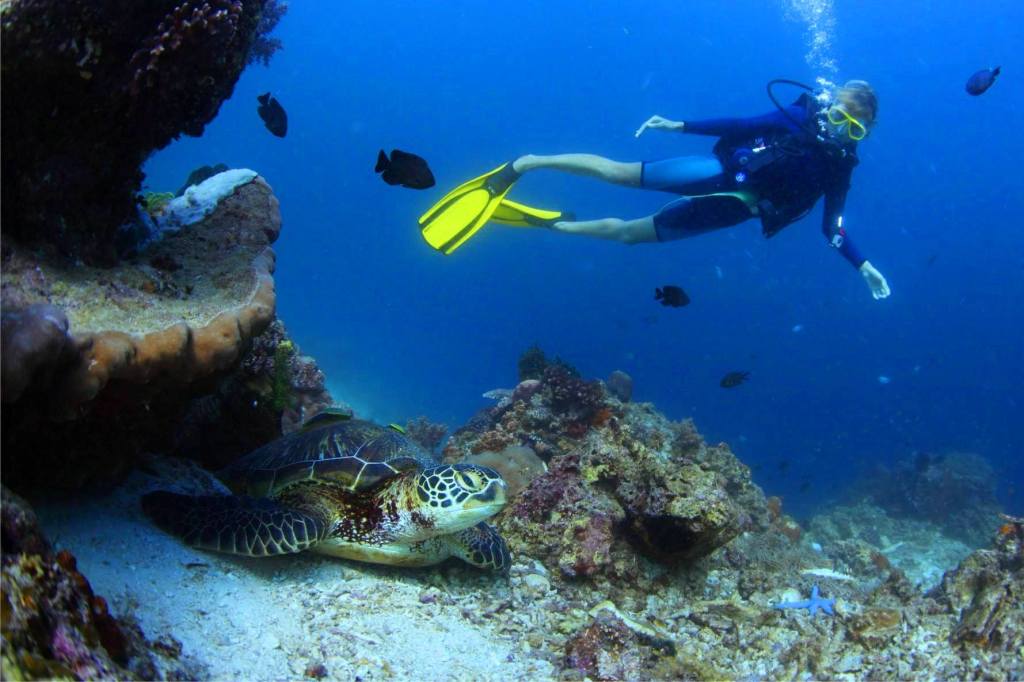
Surfing
Itacare is one of the best known places in Brazil for surfing. With its huge waves, it attracts the active travellers. The waves are perfect for surfing and lessons can be arranged. From May to September, when swells and winds turn south, surfing conditions are excellent in Itacare.
7. Cycling
You have many advantages to choose discovering Bahia by bike. Biking allows you to explore places that may not be easily accessible by car. You can take smaller roads or paths and discover hidden gems. When you travel by bike, you’re not just passing through a destination; you’re experiencing it. You can feel the breeze, smell the air, and connect with the local environment in a way that you wouldn’t be able to from a car. Biking is a great form of exercise, and discovering a destination by bike is a fun way to stay active while on vacation. It can also be a great way to de-stress and improve your mental health. Biking is a sustainable and environmentally-friendly way to travel. It produces zero emissions and has a much lower carbon footprint than driving a car. Biking through a destination allows you to interact with locals and immerse yourself in the local culture. You can stop and chat with people along the way and get a sense of the community. Take guided bike circuits in Bahia, to discover beautiful nature, history, culture, good gastronomy and biking. Surrounded by the lush Atlantic Rainforest, the region features deserted beaches, rivers, lagoons, clear water waterfalls and a historic heritage of cacao farming, with century-old rural farms. Rocky mountains hide, in their secluded coves, small and delicate fine-sand beaches, sheltered by dreamy coconut groves.
View recommended cycling itineraries here: in the North of Bahia, in the South of Bahia.
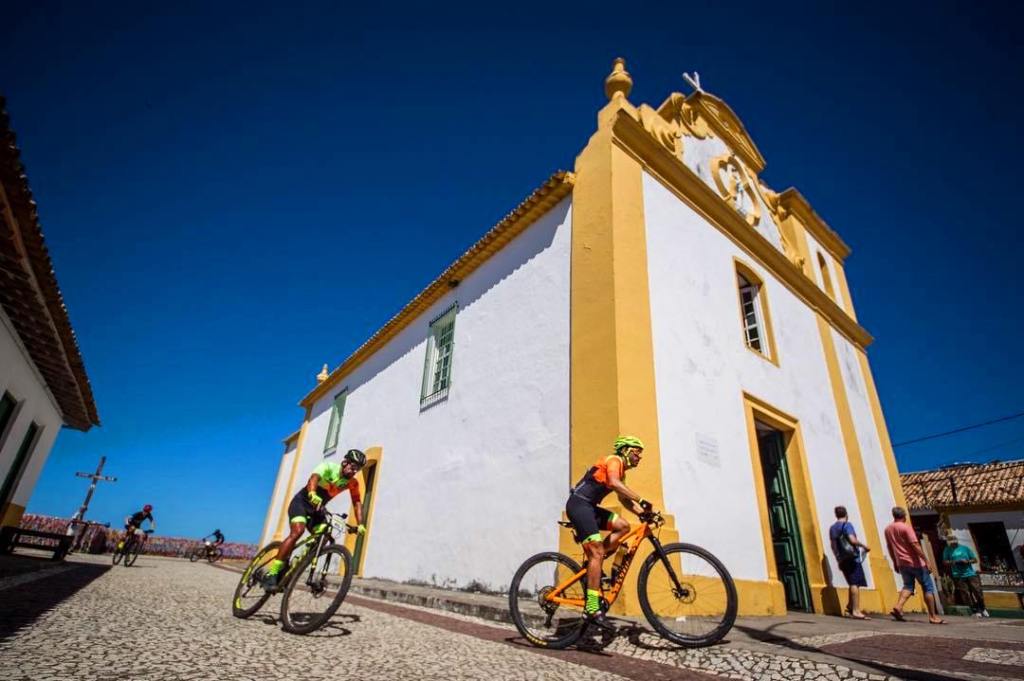
8. Capoeira
Bahia is known as the birthplace of capoeira, so there are many places where you can practice this martial art in the state. Born from the colonial era, capoeira is a form of martial arts. Various variations are played at different speeds and are accompanied by music. It is possible to learn the rhythms, develop agility and power. Capoeira arrived in Brazil in the 16th century, with the bantu slaves. Camouflaged in dance, the fight became art, incorporating music and instruments, such as berimbau, tambourine and caxixi. If you always wanted to try your skills and learn the harmonious dance of capoeira, Bahia is a great place for that. You can have classes in Salvador, Serra Grande, Itacare, Trancoso.
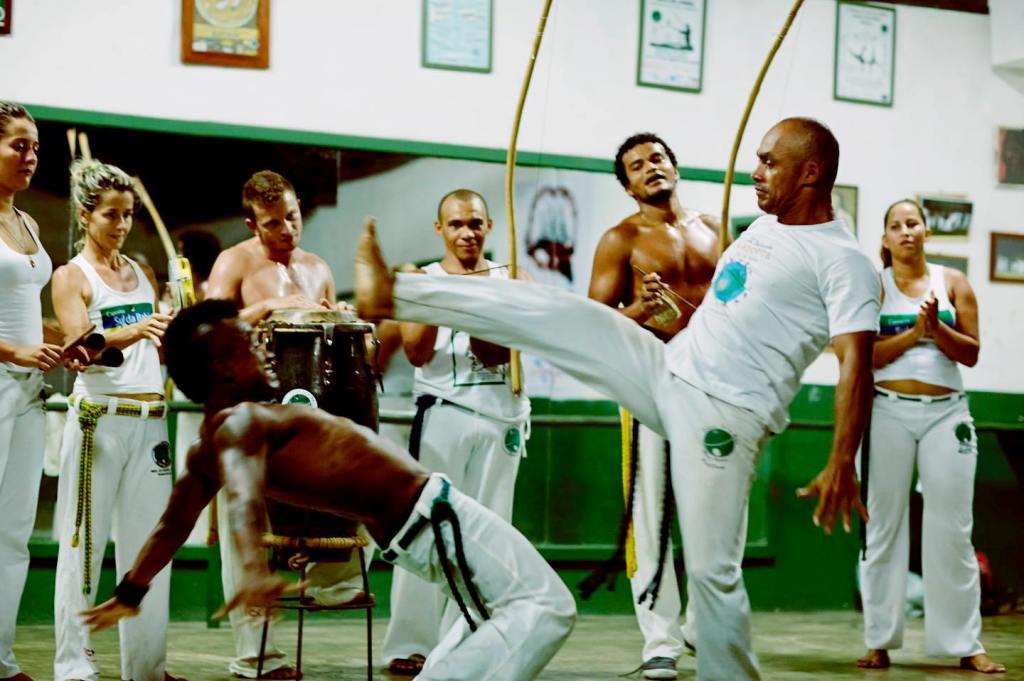
9. Indigenous Culture
Meet the indigenous Pataxo tribe in the south of Bahia and learn about their traditional way of life. You can visit Coroa Vermelha for an Indian tribe immersion day. The reservation is only 30 minutes away from Porto Seguro. Guided by Pataxos you will hike in the forest and look for medicinal and plants used by the Indians. The indigenous people are still preserving their culture with their traditional dances, praying to their gods and wearing traditional clothes. The Pataxos ornate their faces with beautiful paintings and you can also have one should you wish so. You will have a lot of fun getting to know these endangered people in Brazil. Also south of Caraiba, you can visit the indigenous village of Porto do Boi to connect with the Pataxo culture. They will dance, perform body painting, prepare traditional fish in patioba leaf and explain about different natural remedies.
See more information about how to visit HERE
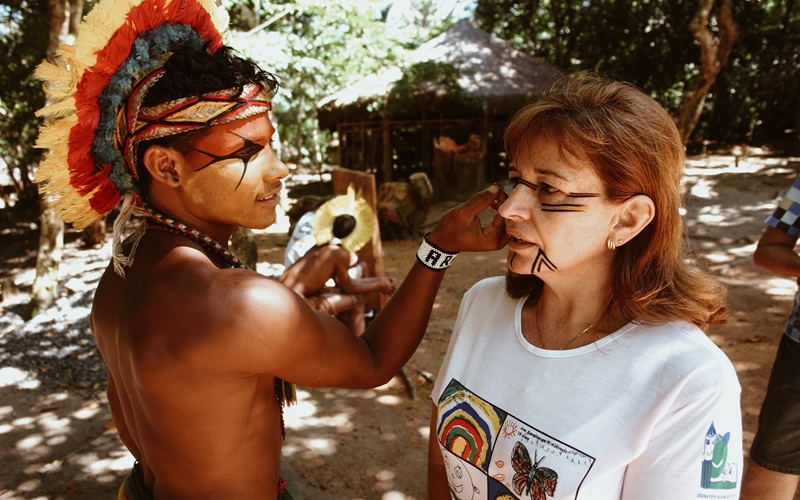
10. Marine Conservation
There are great marine conservation efforts being run in Bahia and you can meet the biologists and learn more about what they do.
Turtles: Visit Praia do Forte a lovely beach village locted in the north on Salvador, famous for its transparent waters and white sands, where sea turtles lay their eggs. Beaches are sheltered by lush coconut groves and a rich coral reef stretching along the shore. At low tide, colourful fish get stranded in small natural pools that form around the reef. Snorkelling and diving is really great here. Visit the conservation project Tamar, dedicated to preserving the five species of sea turtles native to Brazil.
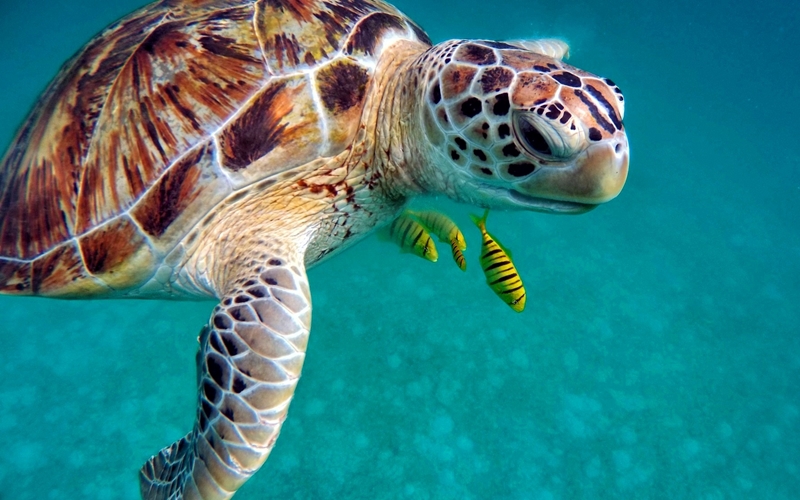
Humpback Whales Watching: in the right season (July – September), meet the biologists from the Instituto Baleias Jubarte, which has a HQ in Bahia, who will make a briefing about the humpback whale species. Seeing a whale is undoubtedly an exciting experience. Being side by side with this gigantic aquatic mammal even for a few seconds is unforgettable. The minimum distance allowed is 50 meters. Head out on an open boat to observe these magnificent mammals.
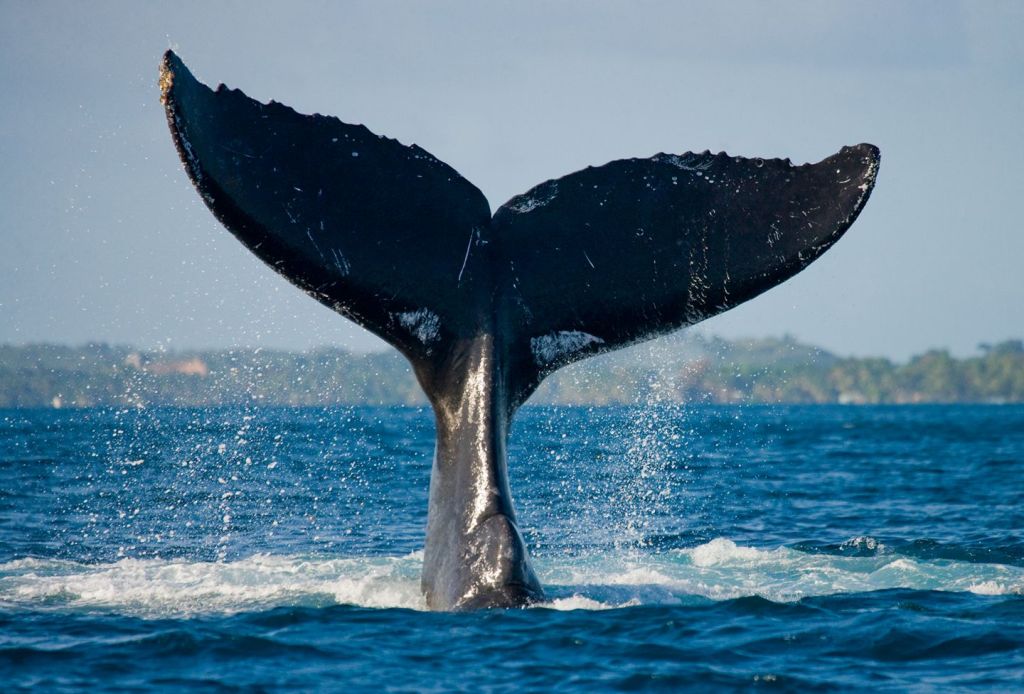
11. Wellness – Yoga and Spa
Bahia is also a perfect location for a more relaxing travel experience where wellness takes centre stage. BTE can design wonderful itineraries to include more relaxing activities such as yoga and spa treatments. We work with a wide range of wellness and yoga experts, hotels, spas and private locations to be able to design creative, wellness itineraries.
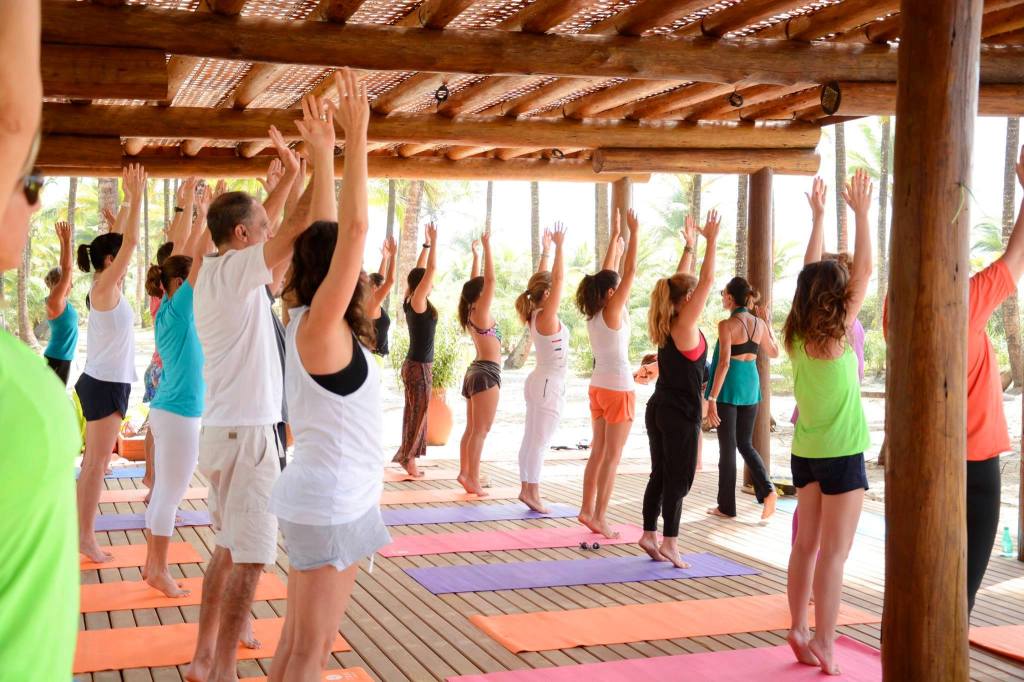
***
We do hope that you found this blog about Bahia interesting and what BTE can offer you in this region.
Boutique Travel Experts (BTE) is a small independent tour operator specializing in Brazil. All trips are tailor-made. BTE works with small hotels and local guides, encouraging a sustainable tourism and supporting responsible practices.